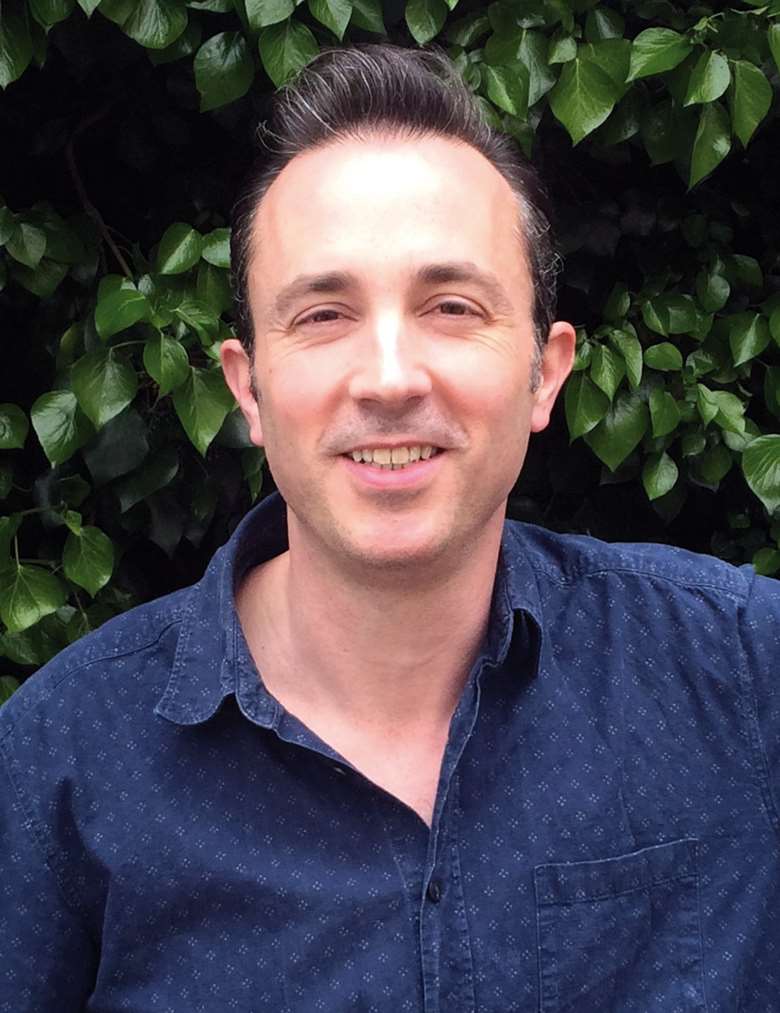Advocate for youth rights: James Kenrick, chief executive, Youth Access
Derren Hayes
Tuesday, March 27, 2018
Derren Hayes meets James Kenrick, chief executive of Youth Access.

Last September, James Kenrick took over as chief executive of Youth Access following the retirement of Barbara Rayment after 22 years at the helm. The organisation, which represents the interests of 188 youth information, advice and counselling services (YIACS), has five staff based at its south London office. Kenrick, who has worked for Youth Access for more than a decade, is about to launch the organisation's new strategy.
What ethos underpins the new strategy?
A key part is to move away from us being the experts and instead work with members and young people to support them to lead change. We think that will be more powerful than us carrying forward messages.
We do need to withdraw a bit from being the experts, and be more about facilitating local agencies to put across their expertise and to support young people to do that.
We still need to hold some expertise but we need to be driven much more by the needs of agencies and young people. That means we need a bigger focus on engagement - I don't think we've spent enough time gathering their views before setting our policy objectives.
Is there an appetite among young people for this?
We've seen it with gun control in US, that young people are taking hold of these situations and leading change. After 10 years of austerity and the political vacuum around young people's policy, social change is happening in different ways.
Within voluntary services, it's a set of progressive funders that is leading the sector down this route.
How is your role going to evolve as a result?
We have a really important co-ordinating role. We're in favour of young people leading change but they need a bit of guidance and organisation. We have a specific expertise that we want to share with young campaigners to help them form co-ordinated actions they need to drive social change. Our role is to take what they tell us and help provide them with those tools to carry the message more powerfully than we can on our own.
How are you supporting young people to lead change?
We've looked at how some large-scale movements are built and how you mobilise people and brought those techniques into our work. We've looked at the Bernie Sanders and Dreamers movements in the US. We went over there to look at how young people campaign on rights-based issues as that's something at the heart of our work.
What have you learned from the US approaches?
One thing we've learned about is some of the dangers of their techniques in how young people were putting their heads above the parapet. That was effective in changing policy when someone friendly was in the White House, but now there isn't it has left them vulnerable to being targeted for deportation.
We need to be very clear about what some of the risks might be if they are to tell their stories. We need to move away from dragging young people to events to tell their story - we don't need to know the intricacies of what has happened to them. We want them in the room as experts by experience.
How will you develop your rights-based work?
We want to train a cohort of young people in understanding their rights and how the law works. Our Make Our Rights Reality project is training 1,800 young people through hubs in Norfolk, Hampshire and the North West about rights-based problems that may arise over the course of their lives.
It is about young people using their rights to tackle everyday problems, and then go on to create social change collectively. It's very difficult for young people to create change if they do not understand their rights, the law and the system.
We're talking about rights in every meeting, and people seem ready to talk about rights again, whether in the youth or mental health sectors. The first national campaign we are supporting young people to launch is about young people's rights to access mental health services.
Do you support the mental health green paper?
We feel slightly conflicted on how much to invest in it. For us, transformation of child and adolescent mental health services (CAMHS) has been set by Future in Mind. The green paper slightly disturbs that and may drive some of the good work around CAMHS transformation slightly off course. We're concerned about the impact some of the proposals could have on counselling in schools.
Where do YIACS operate in England?
Our members are not evenly spread across the country. There are pockets, such as the West Midlands, where there are very few, while we have a great presence in Hampshire, Manchester and Liverpool.
The need for YIACS is similar everywhere, but what's different is the municipal picture. In areas that have stronger statutory provision there is less room for the voluntary sector.
In some areas, such as Berkshire, there are lots of counselling but few advice services.
Young people tell us that having access to the full range of YIACS is important. Our ambition is for all young people to have good access to YIACS - that's how we need to be measured.
JAMES KENRICK CV
- Sept 2017: Chief executive, Youth Access
- 2014-17: Head of policy and development, Youth Access
- 2004-14: Development manager, Youth Access
- 2000-04: Advice services development officer, Youth Access
- 1990-2000: Advice worker/manager law centres and independent advice agencies




